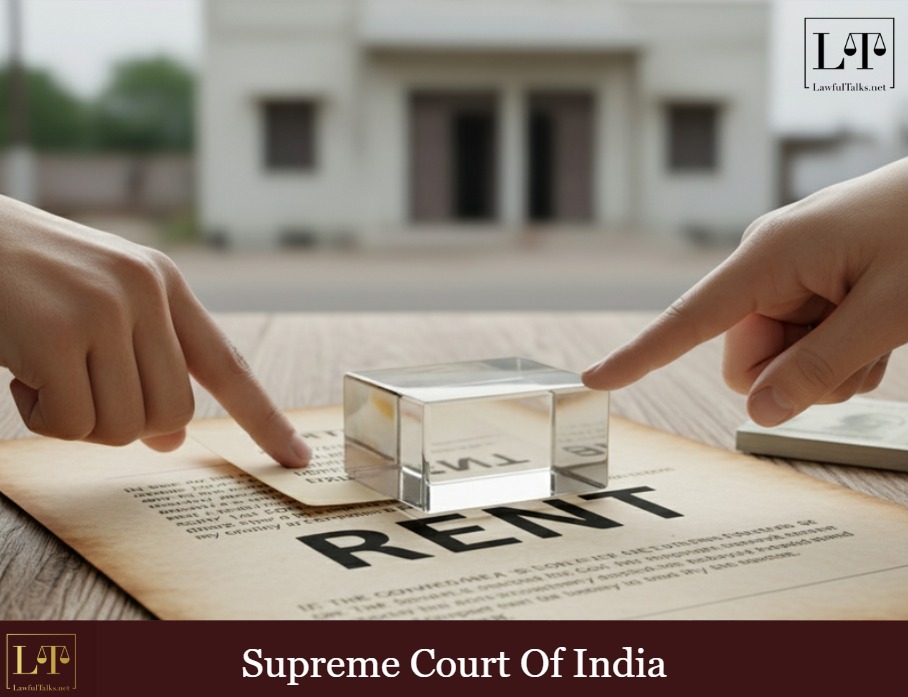Allahabad HC Sets Aside Afzal Ansari's Conviction, Allows Him to Continue as MP

In a significant ruling, the Supreme Court drew a clear line on what tenants can and cannot rely on when disputing rent. The Court held that if a tenant challenges a “fair rent” order but does not obtain a stay, they cannot simply avoid paying the revised amount by pointing to pending appeals. Without a stay, the Court said, the order remains fully in force.

A Bench of Justices Dipankar Datta and Manmohan reiterated a long-standing principle of civil procedure: “Mere filing of an appeal does not operate as a stay of the decree/order under appeal is the statutory ordainment in sub-rule (1) of Rule 5 of Order XLI, CPC.”
The Court also drew support from its earlier ruling in Girdharilal Chandak and Bros. v. Mehdi Ispahani, noting:
“If a person does not seek stay of an order passed by a Court below, it would only indicate either of the two things viz., (i) that he is willing to comply with the order, or (ii) that he has no objection to the orders of the Court below being put into execution.”
Background:
Despite this clarity, the tenant in the present case continued to pay a fraction of the revised rent even after the High Court upheld the fair rent determination. The fair rent for the commercial godown had been fixed at ₹2,43,600 per month, yet the tenant allowed arrears to accumulate, crossing ₹1.22 crore. These dues were cleared only in 2013, long after the tenant’s Special Leave Petition had already been dismissed in March 2012.
The landlord eventually filed for eviction on the ground of wilful default, prompting the key question before the Supreme Court:
Could a tenant genuinely claim bona fide doubt about rent liability when they neither complied with nor sought a stay on the fair rent order?
Justice Datta, writing for the Bench, held that the tenant’s conduct left little room for doubt. The Court observed, “In the present case, the lessee challenged the fixation of fair rent but did not seek a stay of its operation before the appellate or revisional fora.”
Instead, the tenant made delayed payments and only after years of litigation- conduct the Court said did not reflect any genuine confusion or good-faith uncertainty. As the judgment put it:
“Payments were made belatedly and only after protracted litigation. Such conduct cannot be reconciled with bona fide doubt as to liability. Appellants, it is clear, defaulted in payment of rent and such default, on facts and in the circumstances, is undoubtedly a wilful default.”
The Bench rejected the tenant’s claim that because a case was pending before the Supreme Court, they could not be held at fault. It made it clear that ongoing litigation does not excuse anyone from following an existing order. The Court also warned that appeals should not be used to delay justice, stating:”
“The bogey of judicial finality cannot, thus, be pressed into service to unfairly deny a party the benefits of a judicial decision, operation of which does not suffer from any interdiction by the superior court.”
With this, the Court upheld the eviction and dismissed the tenant’s appeal.
Case Title: K. SUBRAMANIAM (DIED) THROUGH LRS K.S. BALAKRISHNAN & ORS. VERSUS M/S KRISHNA MILLS PVT.LTD.

Nandani Mishra
Second Year, B.SC LLB, (cybersecurity) Hons, National law University
Latest Posts
Categories
- International News 19 Posts
- Supreme Court 390 Posts
- High Courts 383 Posts



















































































































































































































































































































































































































































































































































































































































































































































































































